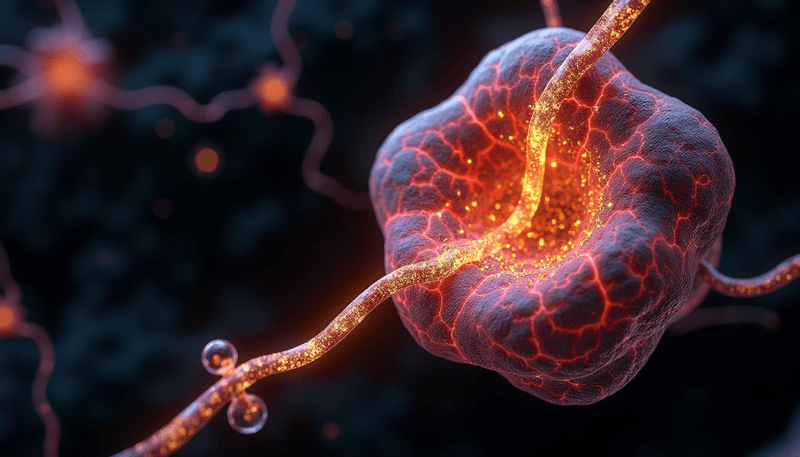Body Shape Affects Your Blood Health

Your body shape tells a more complex story about your health than you might think. While we often focus on weight and BMI, fascinating new research reveals that the distribution of body fat - whether you're more "apple" or "pear" shaped - plays a surprising role in how your blood cells function. A groundbreaking study in the UK Biobank cohort has uncovered intriguing connections between body shape and blood health that could change how we think about weight management.
The Apple-Pear Connection: How Body Shape Influences Blood Cell Production
Having struggled with PCOS and weight management myself, I've always been curious about how body shape affects our health beyond the obvious. This research reveals that people with an "apple" shape (carrying more weight around the waist) show significantly different blood patterns compared to those with a "pear" shape (carrying more weight in the hips and thighs).
Have you ever wondered why two people with the same BMI might have different health outcomes?
The science shows that those with apple-shaped bodies produce more new blood cells (reticulocytes) and have higher hemoglobin levels. Think of it like a factory working overtime - your body is creating blood cells at a faster rate. This isn't necessarily good or bad, but it's different from what we previously thought about obesity and blood health.
The Hidden Impact of Waist Size on Blood Health
One of the most striking findings is how waist circumference, independent of overall weight, affects blood cell parameters. The study found that a larger waist size correlates with increased blood cell production, even in people with normal BMI.
Here's what this means for you:
- Measuring your waist circumference is as important as stepping on the scale
- The location of body fat matters more than just the total amount
- Regular waist measurements can provide insights into your blood health
What if your waist measurement could tell you more about your health than your weight?
Understanding Your Body's Blood Factory
The research reveals that our fat tissue isn't just passive storage - it actively influences how our body produces blood cells. This process involves several hormones, including leptin, produced by fat cells, which can affect blood cell production.
Think of it this way: your fat tissue is like a hormone factory that sends messages to your bone marrow (where blood cells are made). The more abdominal fat you have, the more messages are sent, potentially leading to increased blood cell production.
Practical steps you can take:
- Monitor your waist-to-hip ratio regularly
- Focus on exercises that target abdominal fat
- Pay attention to how your clothes fit around your waist, not just your weight
These findings challenge our previous understanding of obesity and blood health. While we used to think excess weight might lead to anemia, this research shows a more complex picture. Your body shape, particularly where you carry your weight, plays a crucial role in how your body produces and maintains blood cells.
Ready to take action? Start by measuring your waist circumference and tracking it alongside your weight. This simple step can provide valuable insights into your overall health and help guide your wellness journey.
Remember, every body is different, and these findings add another piece to the puzzle of understanding how our body shape influences our health. Consider discussing these findings with your healthcare provider, especially if you're concerned about your body shape or blood health.
What small step will you take today to better understand your body shape and its impact on your health?

Olivia Rose Chen-Martinez
Olivia Rose Chen-Martinez is a seasoned health and wellness writer with a focus on women’s health issues, including PCOS, perimenopause, and holistic wellness. With a background in Journalism and Public Health from UC Berkeley, Olivia draws on over 15 years of writing experience to deliver empathetic, research-backed insights. Her work blends personal anecdotes and actionable advice, resonating with readers seeking accessible and trustworthy information. Based in Austin, Texas, Olivia is also a certified yoga instructor and a dedicated advocate for balanced, integrative approaches to women’s health.






